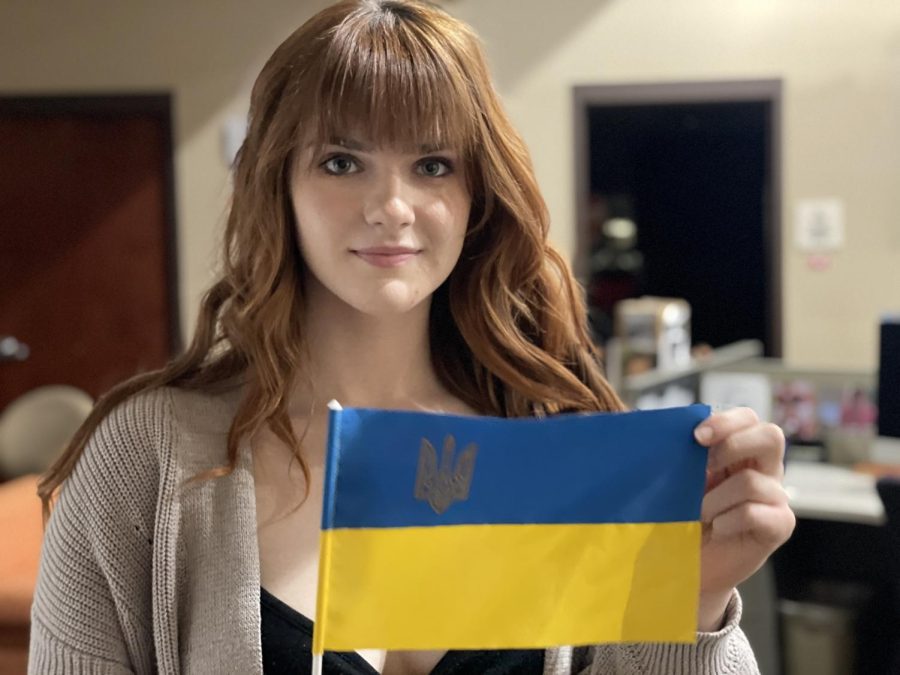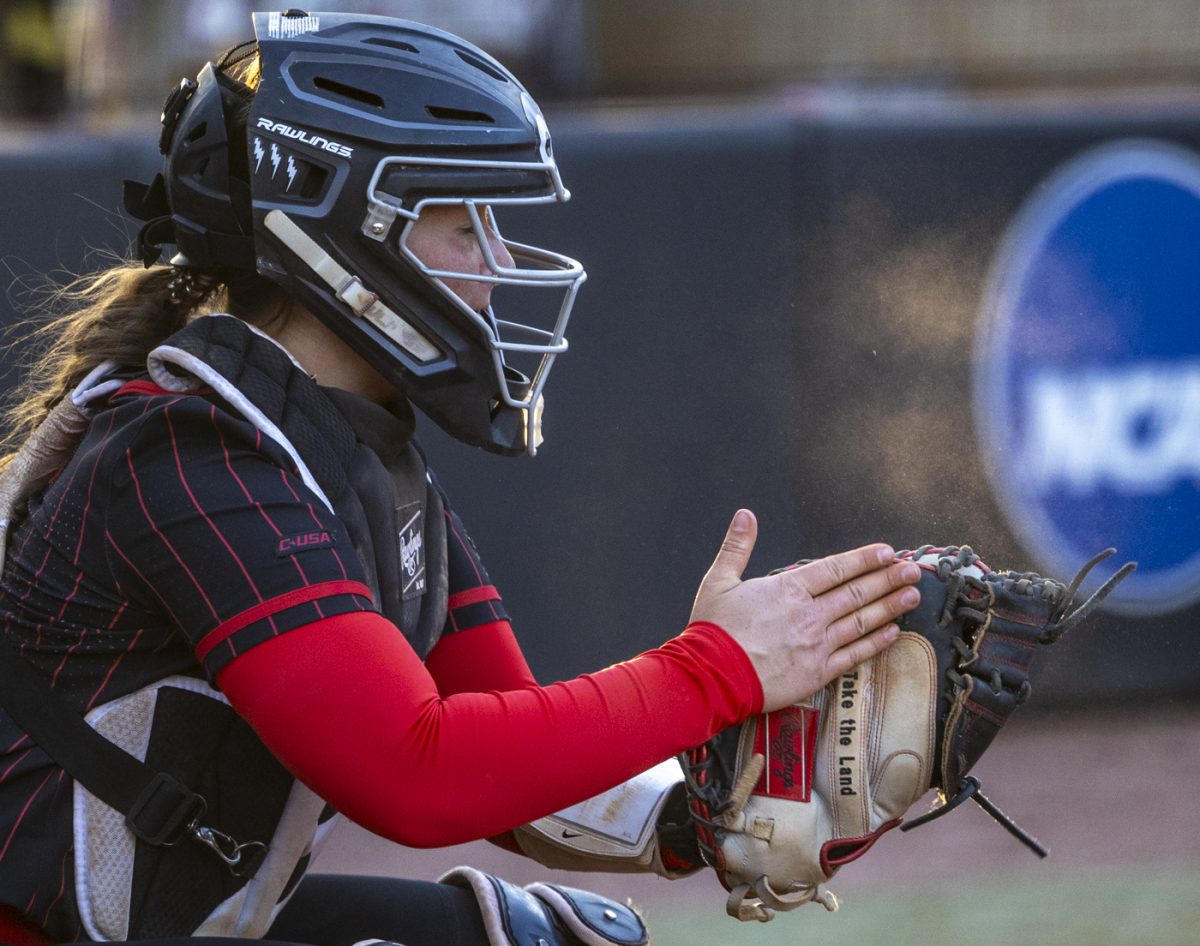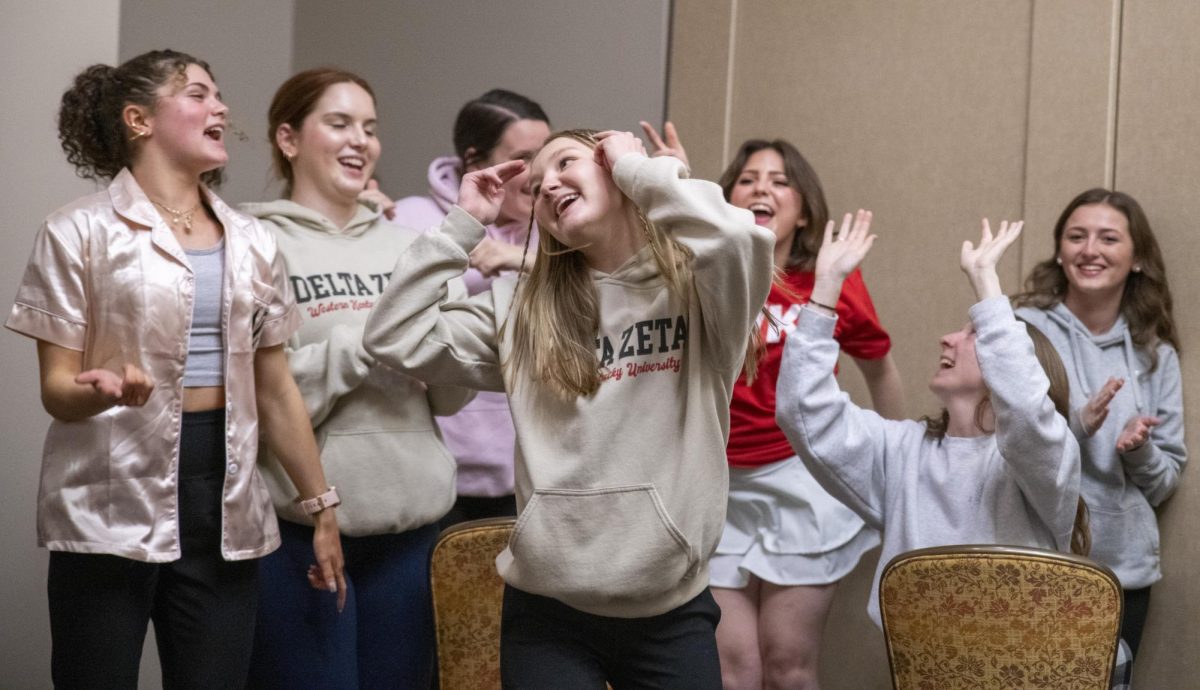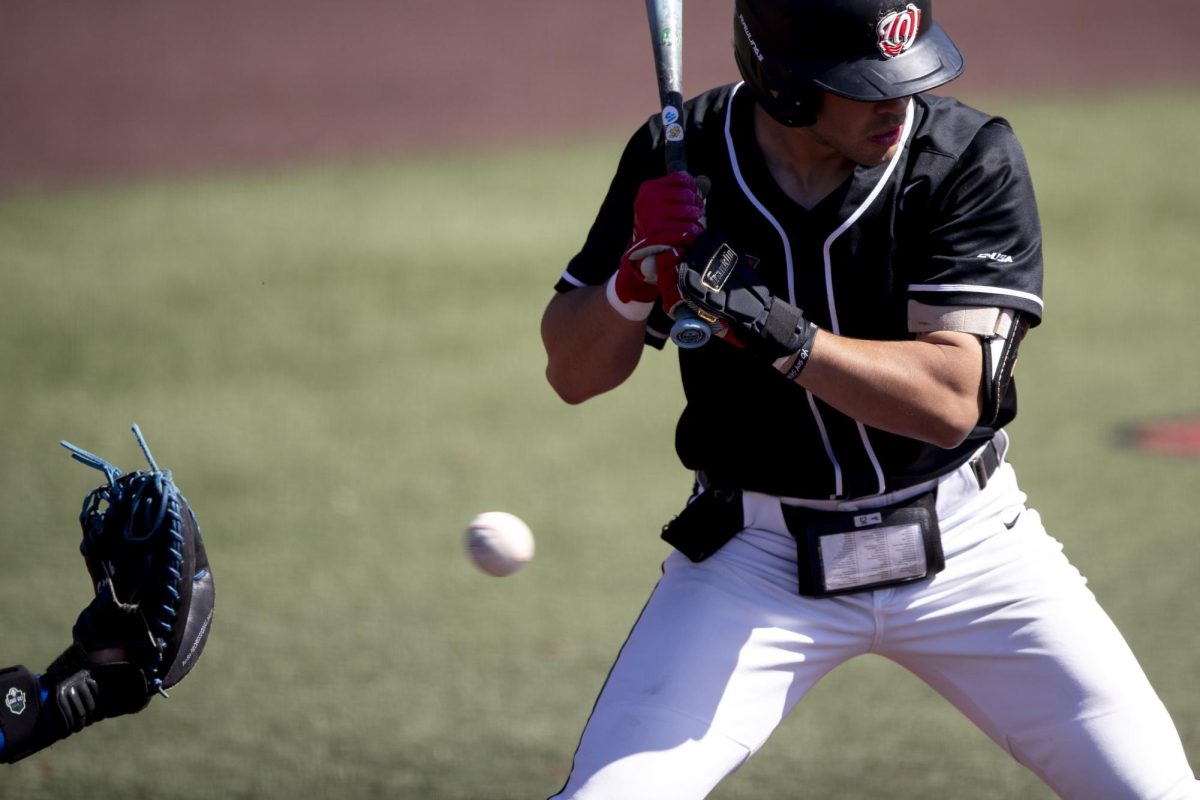‘We are one strong nation’: Russian invasion weighs heavily on Ukrainians at WKU
Julie Mishchuk poses with her flag, which she carries with her every day. Her mother brought it back a year ago from a trip to Ukraine.
March 7, 2022
Masha Mishchuk, a 5-year-old Ukrainian girl, recently learned a new word: “Vinya” — war. Mentioning the word around her brings tears of fear and confusion, as do the sirens and distant gunshots that now echo across the country.
Vladimir Putin taught her this word on Feb. 24, when Russian soldiers entered Ukraine for “military operations,” the modern dictator’s phrase for invasion.
Masha and her mother, Lena, fled their home in Novovolynsk aboard a bus to Poland, at one point hiding as a Russian drone flew overhead.
Her father, a truck driver named Vadim, was in France at the time. They were able to reunite near the border in Poland, where they’re residing temporarily.
Vadim’s sister, Julie, attends WKU over 5,000 miles away and serves as a senator for the Student Government Association. Since the invasion, she’s traveled around campus each day with a Ukrainian flag pinned to her backpack. Like many Americans with family in Ukraine, she’s been fighting a sense of helplessness as she watches war unfold in her ethnic homeland.
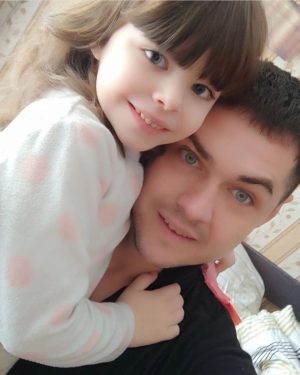
Julie was born in California after her Pentecostal family fled religious persecution in Ukraine. She and Vadim, along with their other four siblings, grew up on a farm in Missouri before moving to Lexington.
A “James Dean” type according to Julie, Vadim is a car enthusiast with a penchant for trouble, but a heart of gold.
“I remember him just causing trouble and it was so funny,” Julie said. “He would make all of us laugh and he was so sarcastic. We thought he was really cool.”
Vadim eventually moved back to Ukraine where he met and married Lena. Now surrounded by uncertainty, Julie says they’re just trying to survive.
Julie recently began a GoFundMe to raise money for her brother and his family, collecting over $2200 since Feb. 25.
“[Vadim] found a place in Italy, but they’re refugees,” Julie said. “I think they were only able to bring two suitcases with them, so they’re starting from scratch. They have no idea when they’ll ever be back, or if they will be back.”
Three generations of Mishchuks grew up under the Soviet flag while living in Ukraine. Her grandfather, a staunch Pentecostal Christian, was sent to a gulag under the Stalin regime.
“They broke his ribs, they knocked his teeth out, they would strip him and leave him outside in the cold and see how much he could endure,” Julie said.
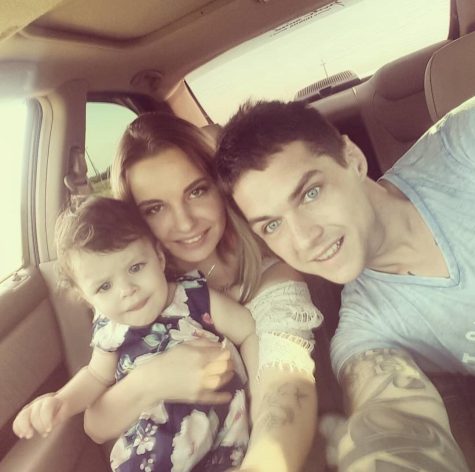
This abuse characterizes centuries of Ukrainian history. The concept of a Ukrainian state emerged in the 17th and 18th centuries, when the region was mostly divided amongst the Russian Tsardom, the Ottoman Empire and Polish–Lithuanian Commonwealth. The rise of nationalism in Europe gave way to a “Ukrainian” identity, despite no Ukrainian state existing previously.
The reign of Empress Catherine II the Great in the 18th century resulted in a unified Ukraine under the Russian flag. Catherine saw it as an opportunity to impress the states of central and western Europe, enforcing strict and harsh control over the region as a show of power.
This abuse did not end with the fall of the Tsar and the rise of the Soviet Union. Ukrainians, such as Julie’s grandparents, were forbidden from openly practicing religion. Underground church groups emerged as a result, like the ones her family attended while in Ukraine.
“They couldn’t gather in churches without being fined a lot of money,” Julie said. “They would try to gather for Sunday church and the military would show up and tell them all to leave.”
Potentially the greatest abuse came in the form of the Holodomor in 1932, when famine brought on by excessive Soviet food exportation killed an estimated 5 to 8 million Ukrainians. Similar to Catherine II’s attempt to impress western Europe, this exportation sought to prove the superiority of communist production practices.
WKU history professor Marko Dumančić said in a panel on March 3 that this period was a watershed moment in the history of Russian-Ukrainian relations. Many victims simply collapsed in the street, succumbing to their starvation.
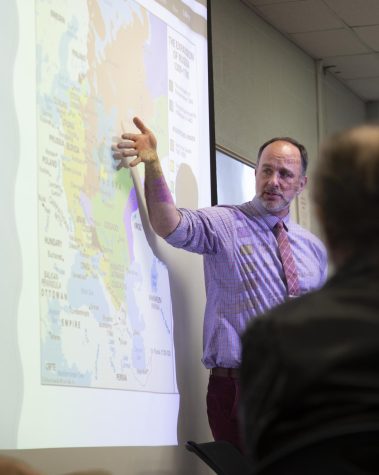
“This, I think, is an example of how Russia has treated Ukraine as simply a geo-strategic, important region that was valuable for its resources,” Dumančić said.
Alex Lebedinsky is an economics professor at WKU who moved to the US from Ukraine in 1994 for college. Born in 1974, his youth was spent in Ternopil, a west-central Ukrainian town around the size of Bowling Green when he left.
Lebedinsky’s father survived the Holodomor. At the time, he was only in kindergarten.
“Some kids would literally just try [to eat] the dirt,” Lebedinsky said. “One day, he remembered, they got some flour in their kindergarten. There was not enough to make anything with, so they just made this sort of gruel, like cloudy flour water, and that’s what they had, but they had to eat.”
Lebedinsky noted that the attitudes of Ukrainians toward Russia differ widely. Older generations who’d seen Ukraine before communism were often more supportive of Soviet leadership, having seen the economic progress brought on by the Russian Revolution. Different regions of Ukraine vary as well, with western regions typically being more critical.
Much of Lebedinsky’s family still resides in Ternopil, including his mother and sister. They opted not to flee the invasion after missing a narrow window of opportunity. The journey would be long and dangerous, with roads difficult to navigate as over half a million citizens fled to neighboring countries.
The streets of Ternopil now echo with daily air raid sirens. Lebedinsky’s family has resorted to sleeping in their clothes in case they need to make a nighttime escape.
“Surprisingly, things are still functioning right now fairly well,” Lebedinsky said. “The banks are open, stores are open. I mean, it’s a very different environment, and there are a lot of refugees right now in my hometown. Ukraine is a 43 million people country and currently there are between 7 to 8 million people [internally displaced].”
Lebedinsky’s sister, Nataliya, feels as though their accidental decision to stay became the right decision. She told Lebedinsky that she’s been volunteering to help in the community, but could not tell him exactly what she was doing. She wanted to be cautious in case something went wrong.
Like many Ukrainians, Lebedinsky has a renewed sense of pride brought on by Ukrainian resistance. President Volodymyr Zelenskyy became an overnight icon across the world with his commitment to staying in Ukraine and fighting. He has denied US evacuation offers and has reportedly survived at least three assassination attempts since the invasion began.
Lebedinsky admitted that, if he was a Ukrainian citizen during the election, he likely would not have voted for Zelenskyy.
“But I am absolutely blown away by his leadership. He just turned out to be an amazing man for the job, so I was proven wrong,” Lebedinsky said. “A part of it is the fact that he’s a comedian by training. […] I think the fact that he had the ability to keep a sort of stage presence, so to say, turned out to be a very crucial skill these days because he managed to inspire a lot of people.”
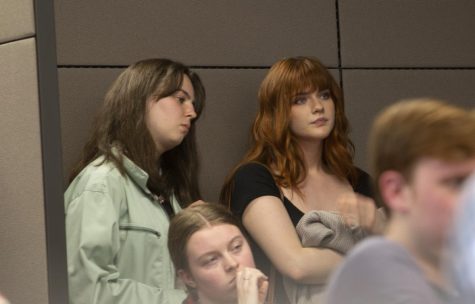
Mariia Novoselia is a WKU foreign exchange student from Odesa, a Black Sea port city that became a landing stage for Russian troops during the initial invasion. She too feels Zelenskyy has been vital in maintaining Ukrainian morale.
“I can see how our nation has ignited and is accomplishing things together and how hopeful we are, and I think that’s because of him as well because he hasn’t run away,” Novoselia said. “Even when the chance to leave presented itself, he stayed and showed that we can stand our ground and fight for our lands.”
Novoselia’s family also opted not to flee the country. When US intelligence reports announced a likely invasion beginning Feb. 16, she urged them to take a vacation somewhere. They chose not to.
“So I had this idea [for them to leave], but they made a different choice and whatever they do, I will support their choice and try to help them as much as they can,” Novoselia said.
Not all Ukrainians have stayed in hopes of dodging danger. Many have made their way to the ranks of the territorial forces that make up Ukraine’s defense.
“Some of my guy friends, they have actually tried going to join the [Ukrainian forces],” Novoselia said. “The problem they had is they’ve run out of spots for some people because that’s how many volunteered.”
Ukraine’s defenders have not all come from within its borders. Dmytro Kuleba, Ukraine’s Foreign Minister, announced on March 6 that over 20,000 foreign applicants have requested a spot in the nation’s international legion, representing 52 countries in total.
Novoselia’s exchange program requires her to return to Ukraine once this semester ends. She admits that she will likely be returning to a different country than the one she left, one marred by the largest war in Europe since 1945.
There’s a saying in Ukraine—”Don’t say hurrah until you’ve over it.” Novoselia said the translation to English loses some of its meaning. She has to remind herself of the saying often, but she’s optimistic for the future.
“With all the things that are happening, we’ve discovered quite a few things about ourselves [as Ukrainians],” Novoselia said. “I don’t think it dawned on anyone how strong we are. We have things we don’t agree on, loads of things, but this whole war is showing that we have very many things in common. We are one strong nation, despite what some might say.”
Editor-in-Chief Michael J. Collins can be reached at michael.collins527@topper.wku.edu. Follow him on Twitter @MJCollinsNews.

